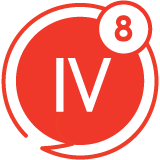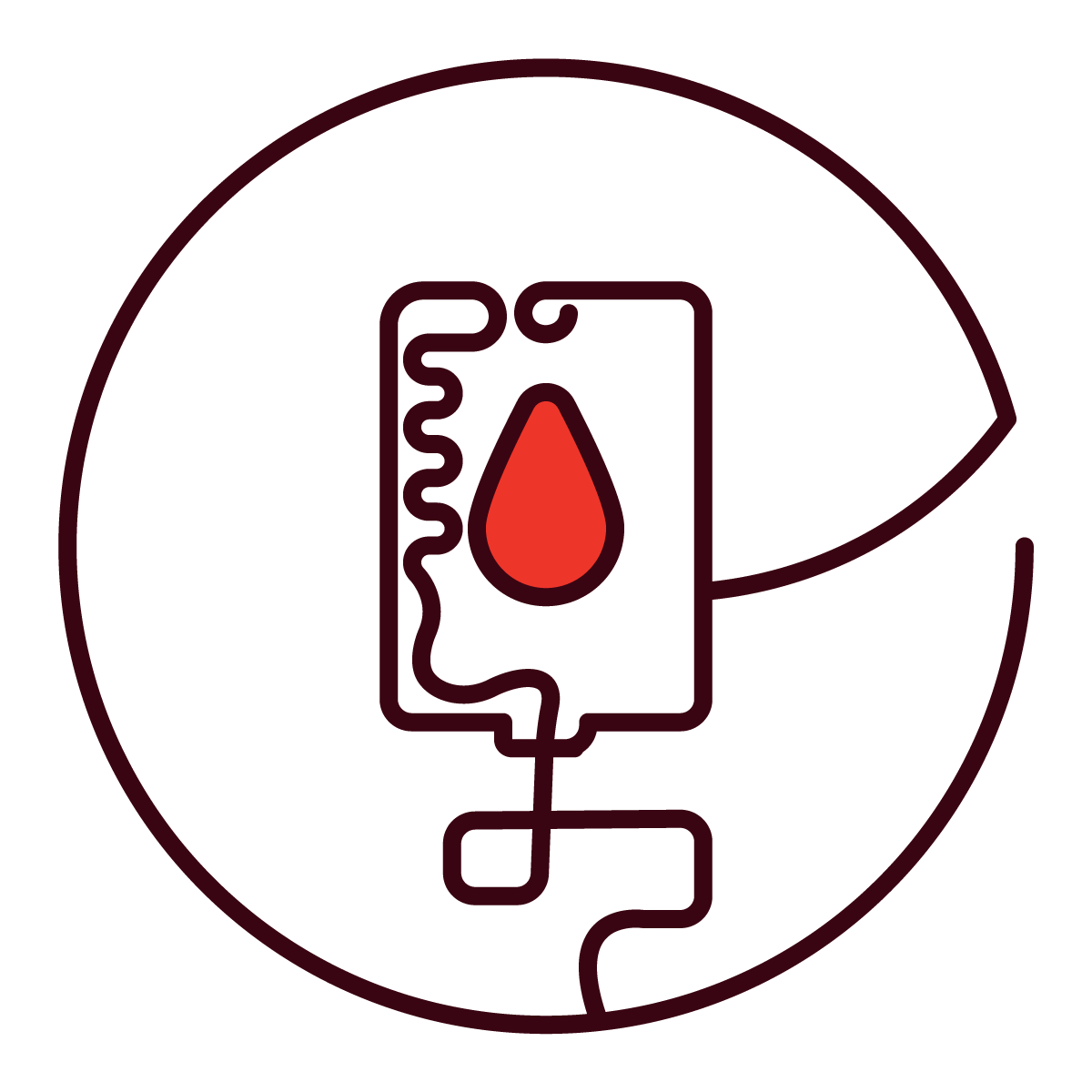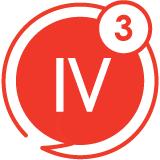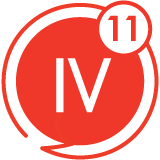Key focus areas and value-creating activities for the period under review
The overall focus of the committee is to ensure donor, recipient and staff safety whilst SANBS continues to build on the iHEALTh strategy and strengthen its position as a cornerstone of healthcare. The focus of the committee for the period under review centred on the oversight of risks within its purview
#6 Inability to consistently meet all demand for specific blood products - group O RBC; pooled platelets; apheresis platelets; rare donors; reagent donors; plasmax
Human Centred Donor Care
- Monitored the #IronStrong project that was expanded to address all aspects of donor iron that may impact on donor health and wellness. The revised, board-approved new Donor Iron Strategy will focus on providing donors with more tolerable iron tablets, improved communication with donors and staff, education on understanding the importance of iron testing and supplementation, and further research into factors associated with and the outcomes of iron deficiency among blood donors
- Noted counselling of HIV-donors lagged behind the target of 60% with improvement after implementation of mitigation steps to address root causes and challenges within SANBS control
- Approved the removal of the upper age limit for repeat whole blood donors and requests for bi-annual doctors’ letters for older donors
- Noted the remedial measures to limit bleeding of underage donors and ensuring compliance with approved inter-donation intervals for the different types of donations as well as for different age groups
Patient Blood Management (PBM)
- Monitored the rollout of the project plan for PBM
- Noted that the impact of the PBM programme in the private sector has not been as successful as initially envisaged. In response, SANBS changed its focus from private clinicians and associations to collaborations with private hospital groups and medical schemes to accelerate the awareness and uptake of the programme
- Noted that the first short learning, internationally peer-reviewed programme on PBM, developed in Africa for Africa in collaboration with the University of the Free State, had its first intake of learners in August 2023
Blood Establishment Computer System (BECS)
- Continued oversight of the BECS implementation and change management initiatives, including training of staff and the plans to ensure the safety and sufficiency of the blood supply during the Go Live period
- Noted reasons for delays experienced with the service provider and actions taken to remedy and ensure progress within revised timelines
Platelet Strategy
- Approved the alternative Platelet Strategy as the original strategy was found to be too expensive for SA to afford. The revised Platelet Strategy is specifically aimed at ensuring a sufficient platelet supply. It involved a comprehensive approach to optimise collections and production, growing donor pools and educating clinicians on the appropriate use of this extremely scarce resource. Project and training plans are being implemented
- Noted that a strategic scorecard has been developed to measure how SANBS would meet its strategic aims and objectives concerning blood products
#10 Non-compliance to regulatory requirements
Quality
- Congratulated the medical team on the JSE Accreditation audit which went very well
- Noted results of SANAS audits and that all sites maintained accreditation
Regulation of Blood Services
CGC was apprised of:
- Developments regarding SAHPRA to take over the regulation of the Blood Services and that SAHPRA would sub-contract with SANAS to perform audits of the Blood Services on their behalf
- SANBS and WCBS are engaging with SAHPRA and SANAS to ensure that we appropriately influence the process
Medico-legal
- Reviewed and approved SANBS’ medical malpractice insurance placed in the international market
- Closely monitored potential medico-legal cases, including reported mortality cases and the potential impact on SANBS’ insurance and reputation
- Tracking and tracing of patients – management had deliberated on the issue and was seeking a legal opinion following cases where SANBS was implicated in the error
- Medico- Legal and Haemovigilance Reporting Guidelines and Terminology document will become a part of the Committee induction pack when completed
Policies and Terms of Reference
- Reviewed amendments to the following policies and terms of reference:
- Integrated Blood Safety Policy
- Risk Based Hierarchical Blood Issuing Policy
- Voluntary Vaccination included in the Occupational Health and Employee Wellness Policy
- Revisions in the HIV in the Workplace Policy; required under Labour laws and regulations
- Terms of reference for the National Blood Safety Committee and Emerging Infectious Diseases Committee
#14 – Uncertainty as to the impact of the NHI implementation on the SANBS business model
CGC noted:
- Professor Clearly from the University of Cape Town had been engaged on the impact of the National Health Insurance (NHI) implementation on SANBS operations
- Management indicated certain gaps not addressed in this report and sought additional input from leading health economists (Prof Charles Hongoro, Prof Ozyar Mahmoned and Dr Sifiso Mtshali) from eLazen
- The report was well received and their feedback was used to guide certain strategic discussions around the SANBS business and cost-recovery models
#15 Compromised safety and quality of blood products
Blood bank automation
- Oversight of the SMART Fridge pilot project with the first SMART Fridge being handed over to the Rahima Moosa Mother and Child Hospital with plans to deploy an additional ten fridges over the next few years
- The successful completion of the Blood Bank Automation project saw a significant improvement in our crossmatch turn-around-times
- Loadshedding remained a challenge when hospital generators fail – a plan has been developed to place generators at Blood Bank sites; approval from public hospitals is awaited
Haemovigilance
- Noted the findings of the Haemovigilance surveys and supported the implementation of actions to address the gaps identified
- Noted that for the first time, the annual Haemovigilance Report, a mandatory requirement, was authored by the Independent Haemovigilance Committee. This introduces a new level of independent oversight of the workings of blood services in South Africa
Other
Oversight of and guidance on the SANBS RAD Academy and related research and development activities. Noted the:
- Progress made in operationalising the SANBS RAD Academy
- High-quality international peer-reviewed publications
- Expansion of the SANBS Mobile Stem Cell Transplant unit and their application for JACIE accreditation
- Delivery of the first SMART Fridge
- Various research projects, including the COVID antibody waning study, the Reveos study and the work done under the NIH Fogarty grant collaboration with the University of California San Francisco and the University of Cape Town




















